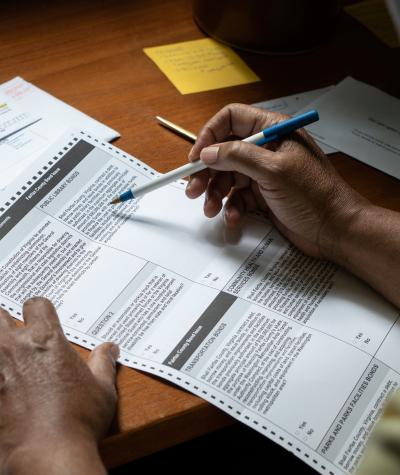The Federal Election Commission (FEC) released a new decision this week, highlighting a longstanding loophole in federal law that allows foreign interests to meddle in state and local ballot measure elections.
In 2018, Montanans voted on a ballot measure to introduce new requirements for mining companies to reduce water pollution. In the lead up to that election, an Australian mining company, through its Canadian subsidiary, spent nearly $300,000 to oppose the Montana ballot measure, which was ultimately defeated.
Although federal campaign finance law broadly prohibits foreign nationals from making contributions, donations or expenditures in connection with federal, state and local elections, the FEC has generally interpreted the ban to apply only to candidate elections.
The agency thus concluded that these foreign corporations’ spending on a state ballot measures did not violate federal law.
The FEC’s interpretation of existing law combined with the failure of Congress to amend the law leaves state and local ballot measures vulnerable to foreign interests that can spend huge sums of money to drown out the voices of voters on issues closest to them.
As another recent example of this glaring problem, a proposed 2020 ballot question in Maine regarding a major transmission line project drew nearly $10 million in spending by a Canadian government-owned utility, dwarfing all other spenders.
Allowing foreign special interests to spend millions of dollars in state and local ballot measure elections threatens our right to democratic self-government.
Responding to this gap in federal law, states have taken the lead to stop foreign interference in their elections. For example, Maine legislators passed a bipartisan bill to stop foreign governments from spending money to influence Maine ballot measure elections.
Although the governor vetoed that legislation, those bipartisan legislators are now leading a new ballot measure campaign in Maine to stop foreign spending in Maine elections.
By the end of 2020, seven states had passed laws to bar foreign interests from spending money in their ballot measure elections. This year, at least seven more states – Maine, Iowa, New York, Colorado, Hawaii, Massachusetts and Minnesota – introduced legislation to address foreign spending in their elections.
Congress has also taken notice: Following the FEC’s recent decision, an ideologically wideset group of lawmakers, including Sens. Kirsten Gillibrand and Marco Rubio and Reps. Elise Stefanik, Katie Porter, Mike Gallagher and Mike Quigley, is calling for a fix to stop foreign spending in state and local ballot measures.
Gillibrand and Porter have already introduced legislation.
In addition, the federal Freedom to Vote Act and the Foreign Political Influence Elimination Act of 2021, among others, would close the loophole that allowed foreign interests to spend enormous sums of money in the Maine and Montana ballot measure elections and protect the integrity of state and local ballot measures across the country.
To ensure that American democracy remains of, by and for the people, and free from foreign influence, state legislatures and Congress should take action to stop foreign interests from spending in ballot measure elections.

